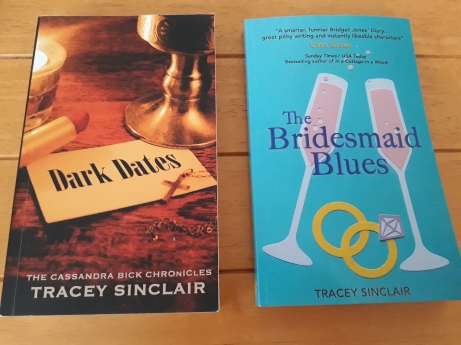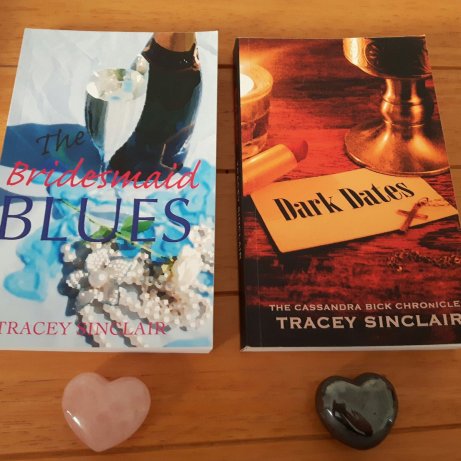Because, by the standards of the internet, I am old and uncool, I often find myself baffled by the wealth of abbreviations out there, wary of a David Cameron moment (who famously signed off a text about someone’s bereavement with ‘LOL’, thinking it still meant ‘lots of love’.). But recently I came across a term that I think it’s worth remembering, especially when it comes to writing: MMV, or ‘mileage may vary’. (Sometimes, YMMV – ‘your mileage may vary’).
What does MMV mean? It means what is applicable to someone else may not be applicable to you. The tips and tricks and advice that have propelled someone else – even someone you greatly admire or identify with – to amazing success might drive you to a nervous breakdown. Not everyone can, for instance, get up at 6am to write for an hour before work: if, say, you need more sleep than most (or sleep badly), you have to take care of a family, or you have a chronic illness or fatigue, doing so might be deleterious to your mental or physical health. Some people find routines soothing, some find them constricting; some people are galvanised by a deadline, others stressed out.
The trick is to find what works for you and apply it – but at the same time, not defining yourself by your limitations, dismissing things before you even try them on the basis you ‘just can’t’. It’s a tough balance to find, and one that needs constant recalibration: gently pushing yourself out of your comfort zone on a regular basis, but keeping an eye on self-care. Knowing your own limits without turning them into an easy excuse for not doing something that, actually, may very well be possible, but that you’re just too scared to try.
Keeping the MMV principle in mind also doesn’t mean adopting a resentful or dismissive stance of ‘well, it’s OK for them to say that, they have money/connections/a supportive family/great health – there’s no way I could do that’. It simply means taking a critical look at the advice of others and seeing which bits you can apply to your own life: what can you make work for you? While also bearing in mind that you may not get the same results. You can probably glean some useful tips about writing from JK Rowling, but that won’t mean you come up with Harry Potter.
So with that in mind, here are some of my own tips, all easily adapted to whatever car you are driving, whether it’s a Maserati or a Mini Metro. Your MMV: and that’s OK.
Read lots, do little
With a two minute search, you can find a million pieces of advice online about making this the year you write that novel, finish that screenplay, Become A Writer or whatever, and lots of that advice is really useful. But not all of it will work for you – and nothing will crash your good intentions faster than trying to implement a rigorous schedule of multiple new habits all at once. Pick a few small changes to start with – you’re more likely to stick with them and see results. You can always add more later.
Pick the bits that work…
Just because a whole programme or course doesn’t suit you, that doesn’t mean it’s useless. I’ve done The Artist’s Way by Julia Cameron several times during my life, and always find it a useful jumpstart to stalled creativity. But I’ve never managed to complete the ‘no reading’ part of it successfully and one of the main components, the morning pages (where you journal at the very start of your day), has never worked for me. While I have learned that journaling is a useful tool, I’ve also realised that, as a chronic insomniac, an extra half hour in bed does me more good than any early morning creative exercises.
But be open to what that might be...
One of the reasons I like books about writing is they often throw up ideas or exercises that I wouldn’t ever think of – and, more than that, that I would normally run a mile from doing. But while you ultimately need to find techniques and habits that suit you, it’s worth at least trying things that might not initially appeal, whether it’s reading your work aloud to see if your dialogue sounds OK, or going on an ‘artist’s date’ – the very act of stepping outside your comfort zone can be useful in itself.

Ignore any rules about ‘real writers’
‘Real writers write every day’ is probably the most common (and, to my mind, toxic), but these come in many hues. ‘Real writers can’t stop writing’, ‘real writers will always find time to write’, blah, blah, blah. When in fact plenty of ‘real’ writers (if you are judging ‘realness’ in terms of commercial success, which is pernicious in itself) only write for part of the year, or take long breaks between books, or find that life occasionally derails them just as much as it does other people.
Differentiate between healthy and toxic comparison
It’s easy to get depressed or bitter when you are surrounded by images of others’ seemingly effortless triumphs. Some people deal with this by reminding themselves that people generally only post the positives on social media and you rarely see the struggles behind any success (as the cliché goes: don’t compare your own movie with someone else’s highlights reel).
But there is also this hard fact: some people (including, if you mix in creative circles, people you know) will simply be more successful than you. They might well get the career break you would kill for, be bringing in the big bucks while you are broke, be sitting pretty in the spotlight when you are struggling on the sidelines. And yes, that is tough to deal with (I am now at the age where I am being outpaced by much younger friends, and happy for them as I am, that can be a tough pill to swallow: it’s not like I can ever catch up with someone who already has a ten-year advantage on me!).
But you can’t change what’s happening around you, only how you react to it. Use it to prove the possibility of success and it might inspire you; let it make you angry, bitter and resentful and it’ll likely paralyse your own creative efforts as well as lose you friends and potentially useful allies. Sometimes, unfair as it seems to you, the grass really is greener on the other side of the fence: but the only thing you can do is water your own lawn.

Don’t wait until you have the time
All of the above said, looking at my would-be writer friends, I think the biggest stumbling block is the fallacy that you will be a writer one day, just not now. You’ll do that first draft when you’re on holiday, or when you take a sabbatical, or even just when work gets a bit easier. I wasted three years between books waiting for the ‘right time’: in the end, my next novel was written in 15 minute bursts, time snatched out of busy days in an incredibly demanding job. Don’t feel like writing needs a lot of time and ceremony – you really don’t need to put aside hours and hours to do it. Sure, you might benefit from doing a writer’s class or going on a writing retreat, but don’t keep waiting for the perfect set of circumstances to arrive, or you might be a year down the line and still not have written a word. Going at your own speed is better than not moving at all…
Like my writing? You can support me in a whole load of ways (some of them for FREE!)
If you’re skint: RTs and shares always welcome. Reviews of anything of mine you have read on Amazon or Goodreads or any book related/social media site, no matter how short, help boost profile. Tell your friends how lovely I am (leave out the needy bit.)
Donate to my Ko-fi. All the cool kids have one. (I am not cool, obviously, but have been assured this is true).
Buy my books: Some are available for as little as a quid! Not these two, mind, but others.
Rom-com with a dash of Northern charm: The Bridesmaid Blues
Paranormal adventure with snark and sexiness: Dark Dates: Cassandra Bick Chronicles: Volume 1
Want some swag? Buy a bag or a tee. And be sure to send me a picture! I’m on Instagram (@traceysinclair23) or Twitter (@thriftygal)


[Note: this site uses affiliate links]

How to hit the spot! This is such good advice in a perfectly crafted blog. Thanks Tracey
Thanks, Clint!